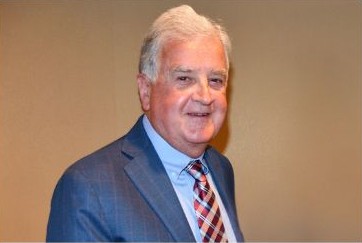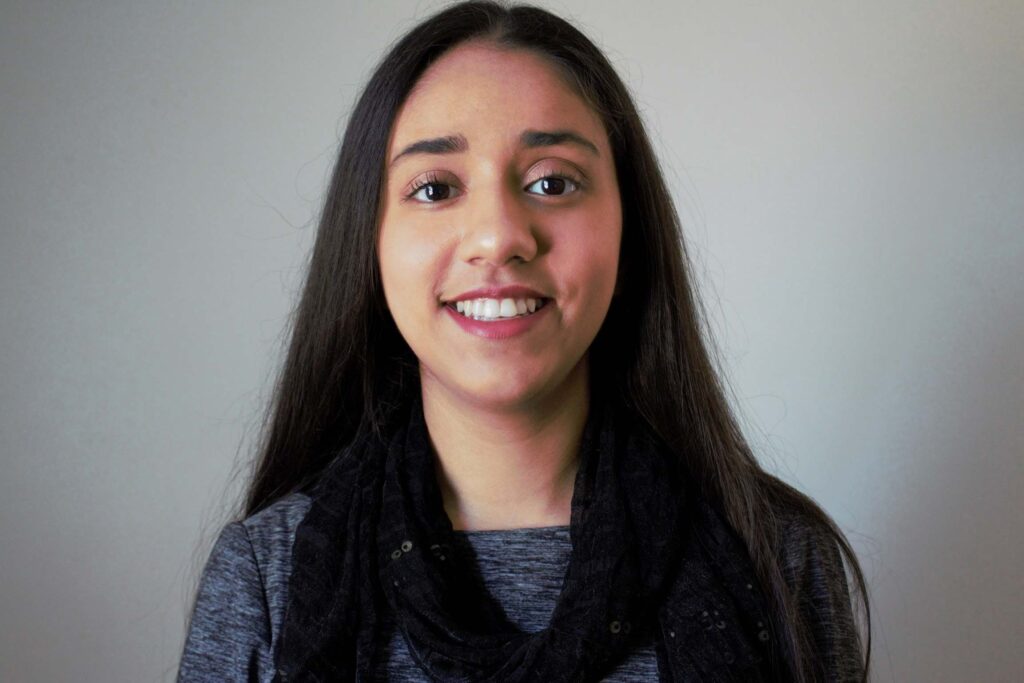
Bill Boodry
Good evening,
It is an honor to stand before you tonight to be part of the TSF 65th anniversary celebration. TSF, formerly CSF, has been an organization dear to my heart dating back to my days at Wakefield HS.
During my senior year as President of the Student Council, we were actively involved in various CSF activities. During my freshman and sophomore years at Boston College, I was fortunate to receive scholarship funds from CSF. I can remember my mother crying when my name was announced as I received a scholarship at my graduation ceremony.
When my wife Anne and I moved back to my hometown of Wakefield in 1990, I got involved as a BOD member of CSF. I will note that my wife Anne also served as a TSF BOD member.
So, through HS involvement, recipient involvement and BOD involvement, I hope you can appreciate that this is an organization that means a lot to me.
TJ White asked me to speak tonight about my involvement in being a fund sponsor. For me, being a fund sponsor involved either creation of a fund or being involved with making an accumulating fund became permanent.
For fund sponsorship, I worked with my family members to create a fund for my nephew Dicky Boodry who died tragically in 1994. I worked with family members creating funds for deceased loved ones, specifically The Peter May Fund (with wife Eileen), and The Christopher Rollins Fund (mom and dad Nancy and Rick and a team of friends). The Chris Rollins fund became a huge community fund raising effort with an event at the Elks with 300 people in attendance.
Working with fellow classmates – one of whom is here tonight, Ann Hadley, we created the Class of 1971 fund. This is a great way to use excess funds from class reunion events to create a meaningful memory in Wakefield.
Again, working with classmates, we donated excess class reunion funds to make a permanent fund for a beautiful classmate, Cathleen Keegan, who passed far too young. The accumulating fund had languished for years without becoming permanent.
These are the five funds on which I am proud to be a fund sponsor.
I recommend you look at the accumulating TSF funds and if you have an interest in a fund becoming permanent, consider becoming involved as a fund sponsor.
The TSF scholarship funds create lasting memories for a great cause. I can think of no better memory for people, or organizations, to be recognized year after year with awards in their name for students from Wakefield furthering their education.
One of the great byproducts of being a fund sponsor is the letters or cards that I receive from award recipients. The messages from students are thoughtful and well written recognizing how meaningful the TSF scholarships are to them and their families.
To close, to the TSF BOD and office staff, thank you for your great work in keeping TSF a vibrant organization. TSF is a long-standing gem in the Town of Wakefield.

Senila Yasmin, MD, MPH
Good evening everyone.
It’s truly an honor to be speaking with you tonight. My name is Senila Yasmin, and I’m a first-year Internal Medicine resident at UMass Chan–Baystate Medical Center.
My journey to medicine has been long and challenging, but thanks to the Scholarship Foundation of Wakefield and donors like you, I stand here today having achieved a lifelong dream.
From a young age, I dreamed of being a doctor. I remember dressing up as one in preschool and falling in love with science at Wakefield High School. Wakefield will always hold a special place in my heart — it was there that my curiosity was nurtured through programs like the Science Olympiad Team and the Amgen Biotech Experience.
As a sophomore, with support from my incredible science teachers, I was selected as one of only 24 students to spend a summer at Tufts University School of Medicine. At just sixteen, I met medical students and mentors who continue to guide me today — and from that moment, I knew medicine was my calling.
Still, I worried constantly about the cost. Coming from an economically challenged background, the expenses — tuition, textbooks, exams, applications — all felt overwhelming. I didn’t know how I’d afford it, but I was determined to find a way.
At Boston University, I was surrounded by people from all walks of life who challenged me to think deeply about my purpose. Through my studies, I came to understand that health is shaped by far more than what happens in a doctor’s office — it’s influenced by education, income, housing, and access to care.
That realization inspired me to complete a Master’s in Public Health before medical school, focusing on Health Policy and Law. It gave me the tools to advocate for underserved communities — something that remains at the heart of my work today.
When I returned to Tufts University School of Medicine, this time as a medical student, it was surreal — sitting in the same halls where I once stood as a high schooler dreaming of that very moment.
In medical school, I joined the Health Justice Scholars Program, an additional curriculum focused on caring for under-resourced communities. Through it, I was able to complete my clinical rotations in the very populations I wanted to serve most.
As a Muslim Pakistani-American, I’ve learned that representation in medicine truly matters. I’ve had patients tell me they feel a sense of comfort and trust when someone who looks like them walks into the room — someone who understands their culture, their faith, and their family values. I know firsthand the challenges of navigating our healthcare system as a person of color, and that perspective drives me to advocate for patient-centered, equitable care.
During medical school, I became deeply involved in organized medicine through the Massachusetts Medical Societyand the American Medical Association. I wrote policies addressing health equity, diversity, and access — including one advocating to remove legacy admissions considerations in medical school applications. For first-generation students like me, without family connections or resources, this was personal. After months of advocacy, the policy passed at both the state and national level.
And my own institution, Tufts University School of Medicine, removed the legacy question from its application as a result. That was one of the proudest moments of my career.
Beyond policy, I also worked to connect medicine with civic engagement — because I believe that voting is a social determinant of health. At Tufts, I led voter registration drives through Vot-ER’s Healthy Democracy Campaign, bringing medical students into community spaces like local health centers and the YMCA to help people register to vote. Our efforts earned Tufts recognition in the Boston Globe for civic engagement.
Through these experiences, I’ve come to see medicine not only as a science, but as a vehicle for justice, compassion, and change.
And through it all, your support made the impossible possible. Because of scholarships from the Foundation, I was able to graduate from medical school debt-free — something I never imagined, especially when the average debt for my classmates was over $200,000.
Scholarships didn’t just ease my financial burden — they gave me freedom. Freedom to choose service over salary. Freedom to care deeply, advocate boldly, and dedicate my career to those who need it most.
Every step of my journey — from Wakefield High School to medical residency — carries your fingerprints. You believed in me long before I wore this white coat. And that belief gave me the strength to keep going.
I’ll carry that faith with me in every patient encounter, every act of service, and every new student who dreams just like I once did.
Thank you for shaping my story — and for shaping the stories still to come.

